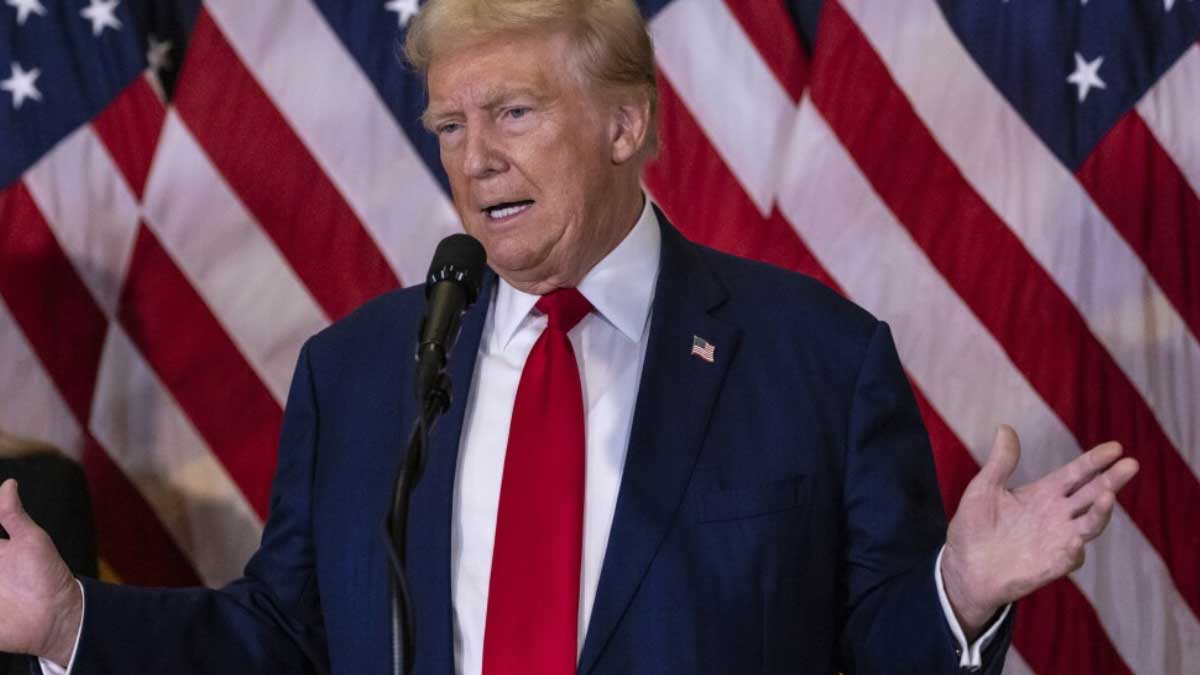- Home
- Billionaires
- Investing Newsletters
- 193CC 1000
- Article Layout 2
- Article Layout 3
- Article Layout 4
- Article Layout 5
- Article Layout 6
- Article Layout 7
- Article Layout 8
- Article Layout 9
- Article Layout 10
- Article Layout 11
- Article Layout 12
- Article Layout 13
- Article Layout 14
- Article Sidebar
- Post Format
- pages
- Archive Layouts
- Post Gallery
- Post Video Background
- Post Review
- Sponsored Post
- Leadership
- Business
- Money
- Small Business
- Innovation
- Shop
Recent Posts
Trump’s Legal Timeline: Key Dates Through Election Day

Former President Donald Trump achieved a legal victory on Friday when the judge overseeing his Manhattan criminal trial agreed to postpone his sentencing until after Election Day. Despite this reprieve, Trump faces a demanding legal schedule over the coming months as he navigates a complex array of criminal and civil cases. His federal challenge related to the 2020 election and his civil fraud case are both poised for significant developments before November’s elections.
On September 17, Trump’s legal team will confront several Capital Police officers in federal court, who are seeking to hold him accountable for the January 6 riot. This case is advancing towards trial following Judge Amit Mehta’s ruling that Trump does not have civil immunity in this context. Later, on September 26, Trump’s appeal of the $450 million civil fraud judgment against him and his business associates will be heard in state court. It is unlikely that a decision will be reached before the election. On the same day, Special Counsel Jack Smith is expected to release new information regarding Trump’s efforts to overturn the 2020 election. Judge Tanya Chutkan has instructed prosecutors to file a brief by September 26 explaining why their case does not conflict with the Supreme Court’s ruling granting Trump partial immunity from criminal charges. This brief is anticipated to include additional evidence that the Government plans to introduce at trial, such as grand jury transcripts.
Trump is set to make a renewed attempt to dismiss the federal election case against him on October 17. Judge Chutkan has directed him to file a new motion to dismiss the charges and respond to Smith’s latest brief by this date. Following this, October 29 will mark the beginning of the clock for Judge Chutkan to rule on Trump’s claim of immunity in the federal election case. The government’s reply to Trump’s motion to dismiss is due by October 29, and a ruling on whether further proceedings are necessary is expected soon thereafter, although it is unlikely that a decision will be made before Election Day.
In recent developments, New York Judge Juan Merchan has postponed Trump’s sentencing on 34 felony counts of falsifying business records from September 18 to November 26. This delay follows a previous postponement from July. Judge Merchan’s decision aims to prevent any appearance of bias influenced by the upcoming election. He stated that the delay should counter any suggestion that the court’s decision or sentence might advantage or disadvantage any political party or candidate. Additionally, Judge Merchan has rescheduled his ruling on whether to overturn the verdict against Trump, initially set for September 16, to November 12.
If Trump wins the November election, several of his ongoing criminal cases could see significant changes. The federal charges related to the election case and a separate criminal case concerning the alleged withholding of White House documents could potentially be dismissed if Trump appoints officials willing to drop the charges. However, state prosecutions against him, which are beyond his direct control, might be paused until he leaves office.
Trump’s criminal case in Georgia, which involves attempts to overturn the 2020 election, is expected to remain inactive until November. This is due to an ongoing appeal over whether Fulton County District Attorney Fani Willis should be disqualified because of her personal relationship with former prosecutor Nathan Wade.
Although Election Day is scheduled for November 5, Trump’s September legal calendar will precede the start of voting season. Ten states mail out ballots more than 45 days before Election Day, with this year’s deadline falling on September 21. Early voting will also commence in several states in September, meaning that some voters might see developments in Trump’s sentencing on September 18 before casting their ballots.
Since leaving office, Trump has faced numerous legal challenges, including four criminal cases and several civil lawsuits. He has broadly opposed these cases, pleading not guilty and describing the allegations as “witch hunts” intended to harm his political campaign. While all criminal charges were filed last year, only the Manhattan hush money case has gone to trial so far. Trump’s efforts to delay proceedings have been successful in pushing back several cases. The federal election case resumed progress in August after the Supreme Court’s July ruling determined that former presidents cannot be criminally charged for “official acts” performed while in office. This ruling has disrupted Trump’s legal battles, resulting in delays in his sentencing and influencing the trajectory of his election-related case.
Recent Posts
Categories
- 193cc Digital Assets2
- 5G1
- Aerospace & Defense46
- AI37
- Arts3
- Banking & Insurance11
- Big Data3
- Billionaires449
- Boats & Planes1
- Business328
- Careers13
- Cars & Bikes76
- CEO Network1
- CFO Network17
- CHRO Network1
- CIO Network1
- Cloud10
- CMO Network18
- Commercial Real Estate7
- Consultant1
- Consumer Tech180
- CxO1
- Cybersecurity68
- Dining1
- Diversity, Equity & Inclusion4
- Education7
- Energy8
- Enterprise Tech29
- Events11
- Fintech1
- Food & Drink2
- Franchises1
- Freelance1
- Future Of Work2
- Games141
- GIG1
- Healthcare78
- Hollywood & Entertainment186
- Houses1
- Innovation42
- Investing2
- Investing Newsletters4
- Leadership65
- Lifestyle11
- Manufacturing1
- Markets20
- Media193
- Mobile phone1
- Money13
- Personal Finance2
- Policy567
- Real Estate1
- Research6
- Retail1
- Retirement1
- Small Business1
- SportsMoney33
- Style & Beauty1
- Success Income1
- Taxes2
- Travel10
- Uncategorized8
- Vices1
- Watches & Jewelry2
- world's billionaires418
Related Articles
Trump Moves $4B Stake in Truth Social Parent, Stock Drops 6%
Donald Trump recently transferred his 57% stake in Trump Media & Technology...
By 193cc Agency CouncilDecember 20, 2024House Rejects Trump-Backed Funding Bill, Shutdown Looms
The U.S. House of Representatives rejected a new government funding bill on...
By 193cc Agency CouncilDecember 20, 2024Trump Named Time’s Person of the Year for Second Time
On Thursday, Time magazine honored Donald Trump as its “Person of the...
By 193cc Agency CouncilDecember 12, 2024Meta Donates $1 Million to Trump’s Inaugural Fund
Meta, the parent company of Facebook and Instagram, has confirmed a $1...
By 193cc Agency CouncilDecember 12, 2024















Leave a comment